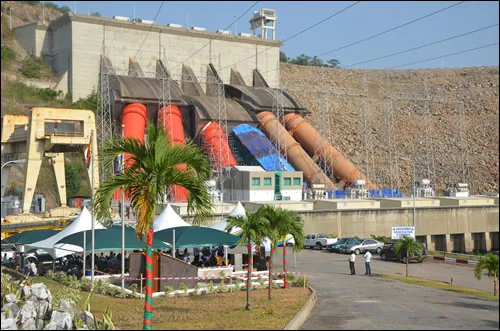IES Urges Gov’t to Reconsider Energy Sector Merger
In a statement signed by Nana Amoasi VII, Executive Director of IES, the group warned that the restructuring could undermine Ghana’s energy security, affordability, and long-term financial stability.
- Advertisement -
The Institute for Energy Security (IES) has raised concerns over the proposed merger of key energy institutions in Ghana, urging the government to reconsider the draft bill that seeks to combine the Volta River Authority (VRA) with Bui Power Authority (BPA) and merge the Electricity Company of Ghana (ECG) with the Northern Electricity Distribution Company (NEDCo).
The proposed reforms also suggest the creation of an independent Thermal Power Authority.
- Advertisement -
In a statement signed by Nana Amoasi VII, Executive Director of IES, the group warned that the restructuring could undermine Ghana’s energy security, affordability, and long-term financial stability.
- Advertisement -
“The opposition from VRA staff regarding the privatization of profitable assets like the thermal plants is justified. This move could severely impact the financial health of VRA and, by extension, the country’s energy security,” Nana Amoasi said.
The IES acknowledged recent reports of opposition from VRA staff, who expressed concerns that the restructuring might lead to asset privatization that could destabilize the organization and reduce electricity affordability. The staff group emphasized that VRA’s diverse power generation capabilities, which include hydro, thermal, and renewable energy, are critical to maintaining energy security.
“The separation of VRA’s thermal assets and their potential privatization pose a serious risk to the organization’s financial viability. Revenue from thermal power sales has been crucial for VRA’s cash flow, and any move to strip this asset from the authority could leave it financially vulnerable,” the statement read.
The IES also highlighted the liquidity challenges faced by VRA due to payment delays from key clients such as ECG and VALCO. The authority reportedly receives only 30% of what is owed to it under the Cash Waterfall Mechanism, a framework designed to distribute revenue equitably across the power sector.
- Advertisement -
“This payment backlog is a major threat to VRA’s liquidity and operational sustainability,” Nana Amoasi noted, adding that failure to resolve the financial issues before implementing the merger could worsen the situation.
The proposed creation of an independent Thermal Power Authority was also met with skepticism by the IES, which cited the government’s outstanding US$2 billion debt to independent power producers (IPPs). “The financial health of a new Thermal Power Authority is far from guaranteed if it inherits the same capacity charge obligations. This could exacerbate the existing debt burden and risk power supply disruptions,” the IES warned.
In its recommendations, the IES called for extensive engagement with stakeholders, including VRA staff and energy experts, before moving forward with the proposed changes. The group urged the government to reconsider the creation of an independent Thermal Power Authority and prioritize resolving the debts between VRA, ECG, and VALCO.
“We believe that stabilizing and strengthening existing institutions such as the VRA, Bui Power Authority, ECG, and NEDCo is the better approach, rather than dismantling them. The government must take urgent steps to address the debt crisis and ensure that any structural changes do not compromise Ghana’s energy future,” Nana Amoasi concluded.
The government has yet to respond to the concerns raised by the IES and other stakeholders in the energy sector.
Source:thehighstreetjournal.com
- Advertisement -


